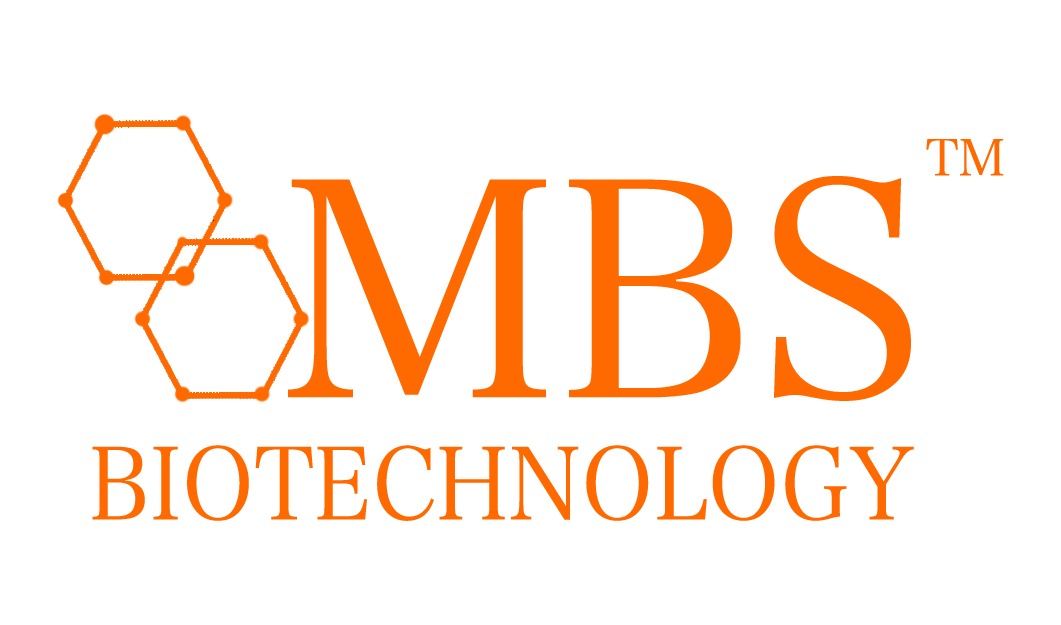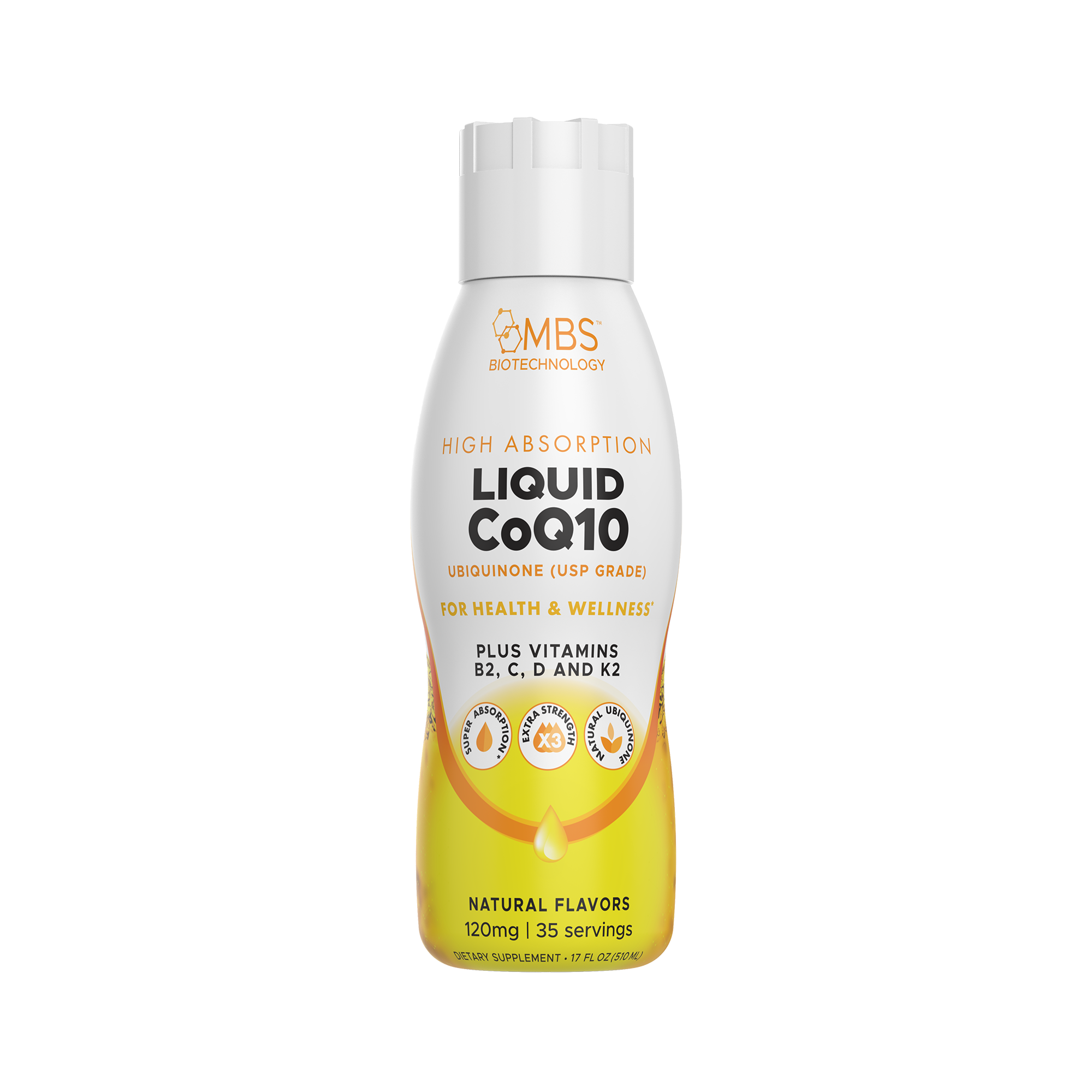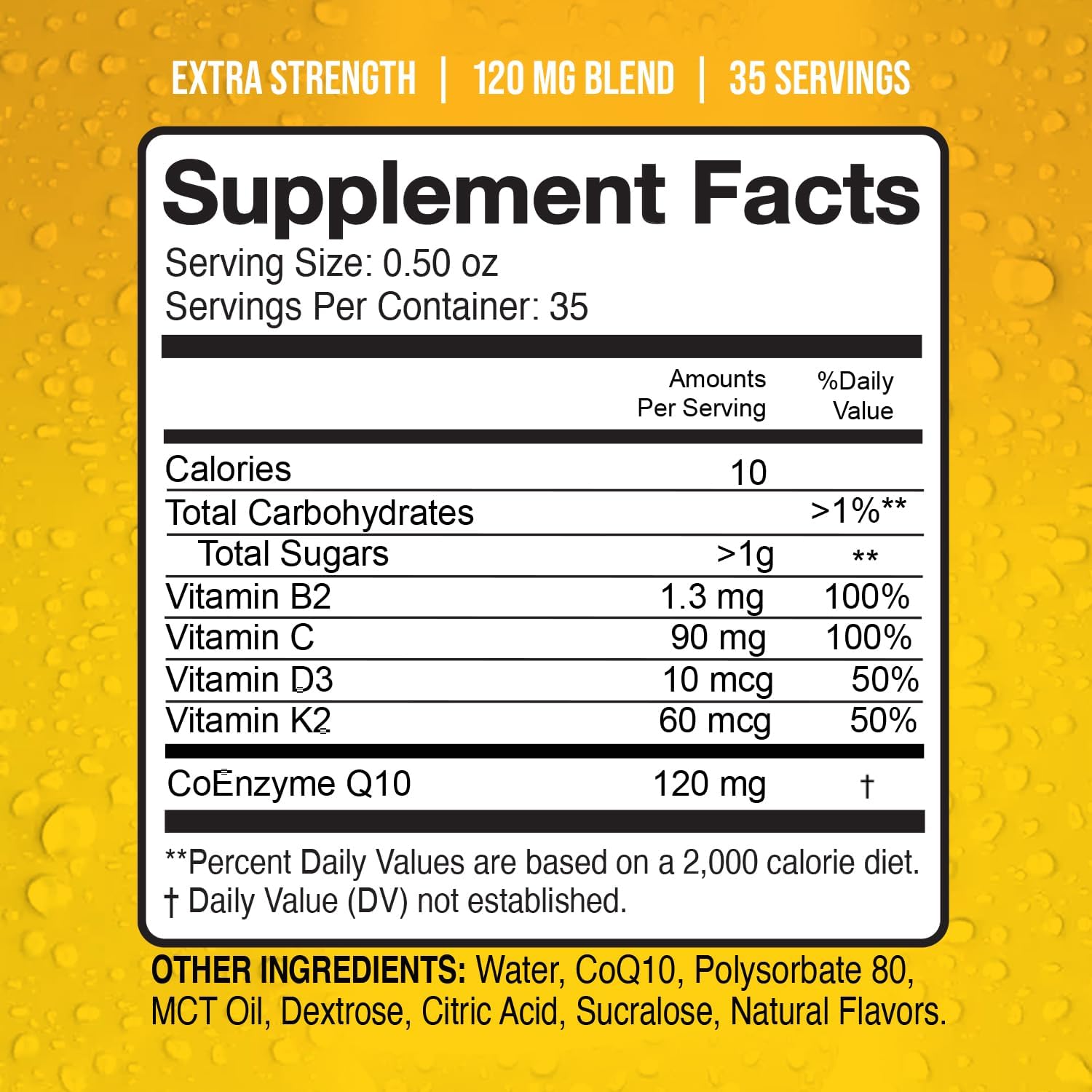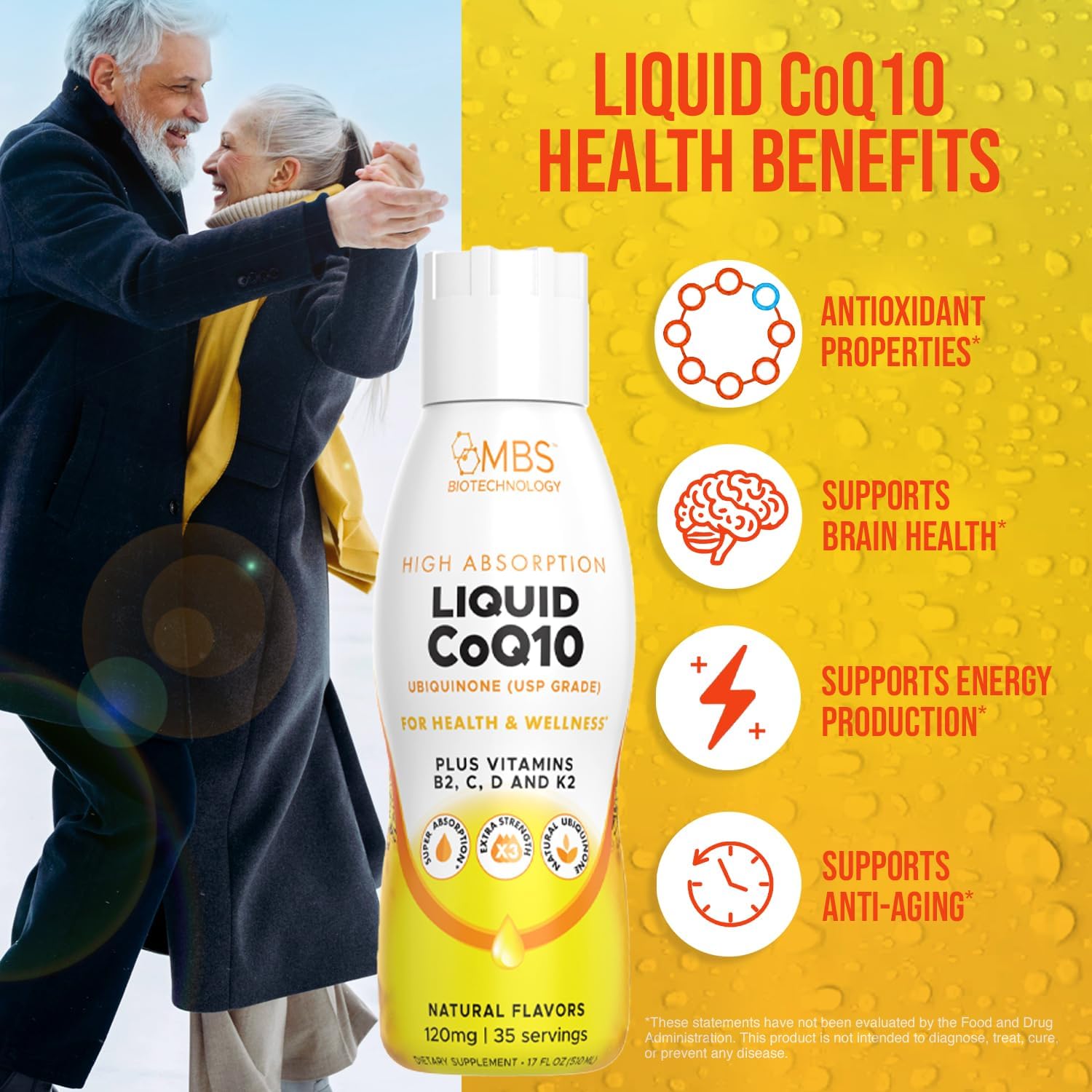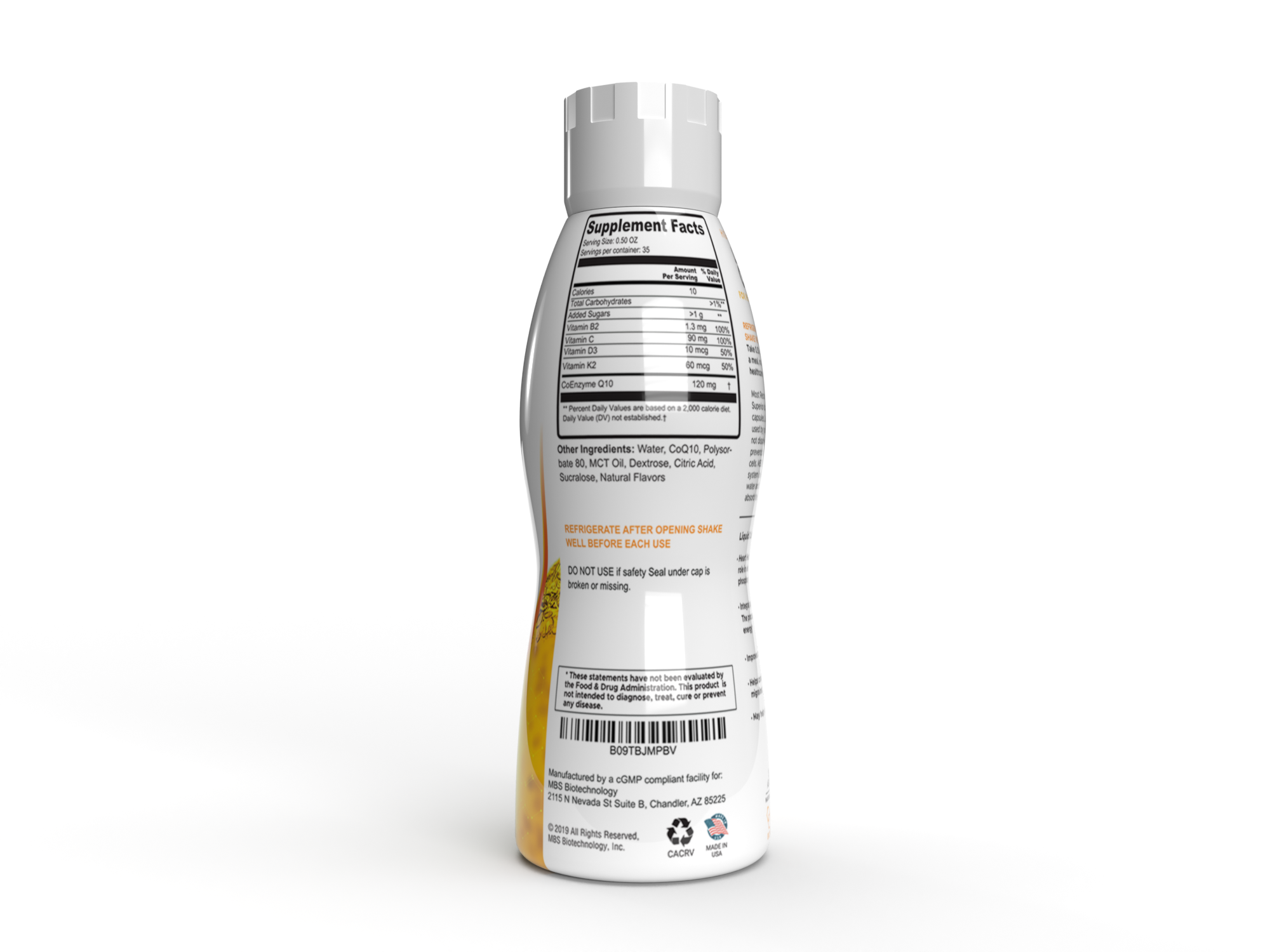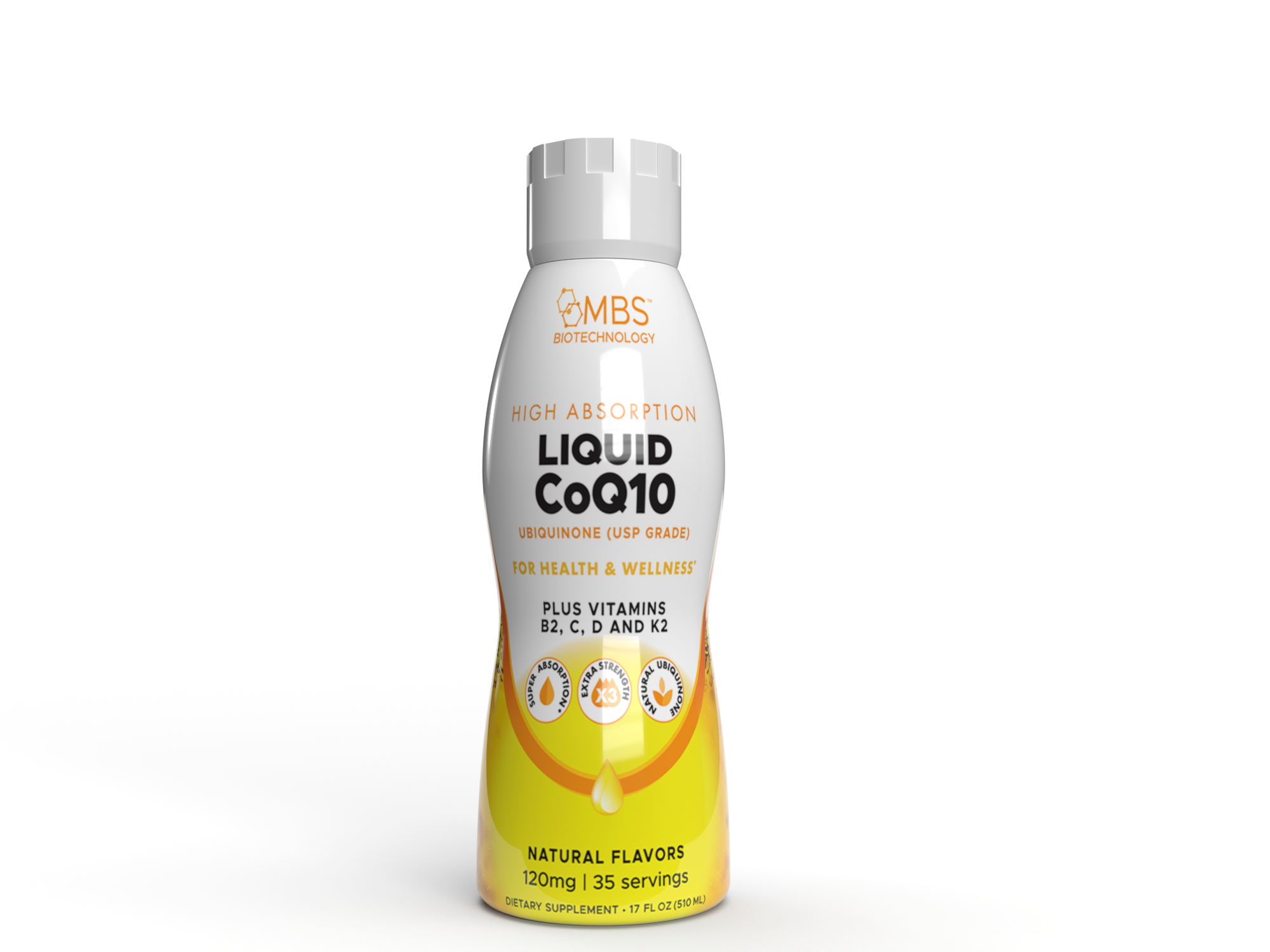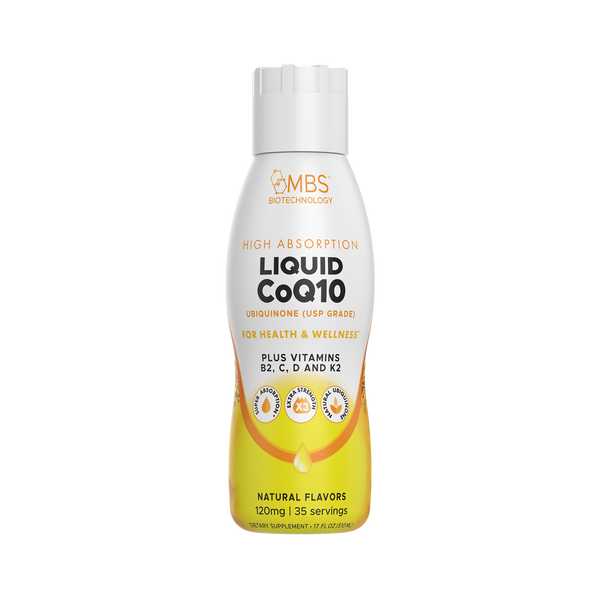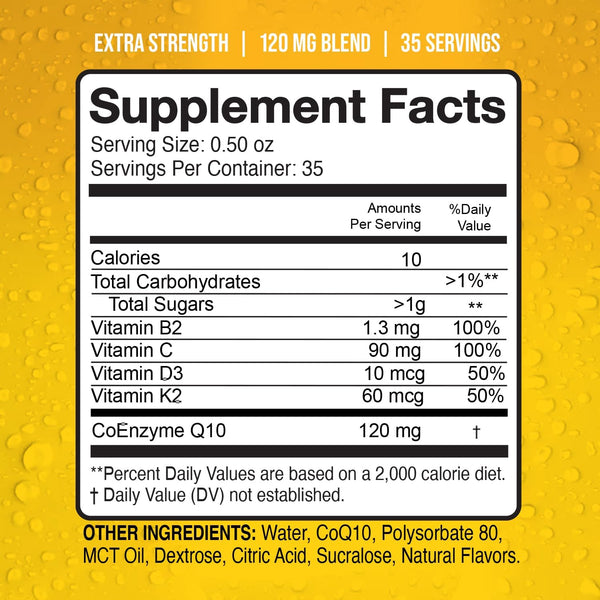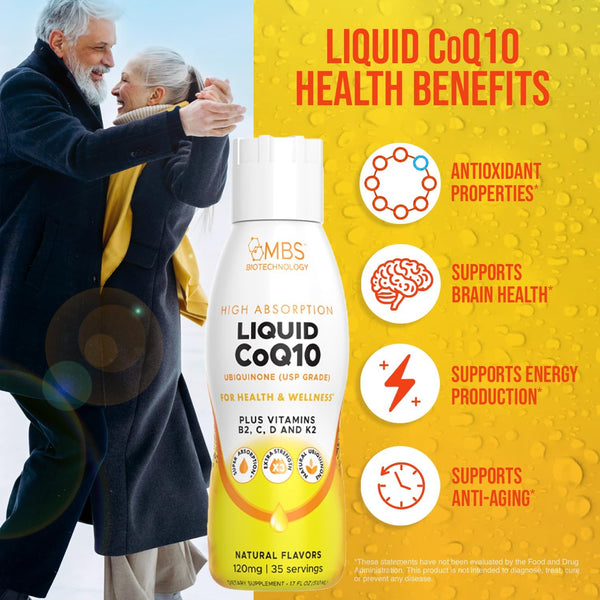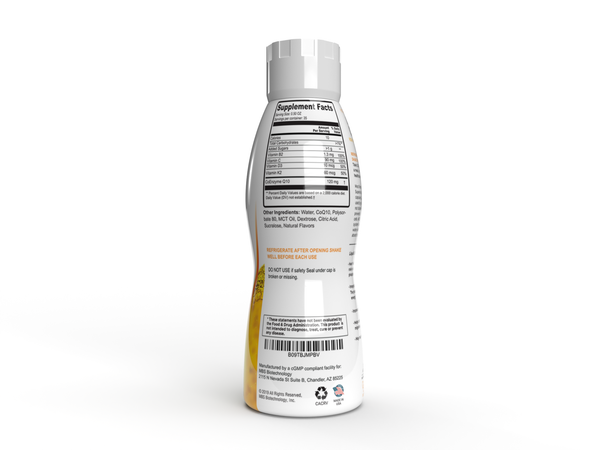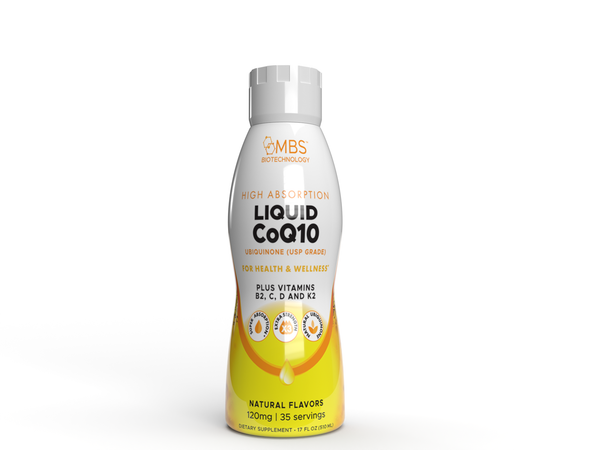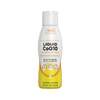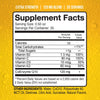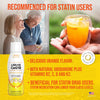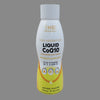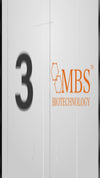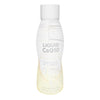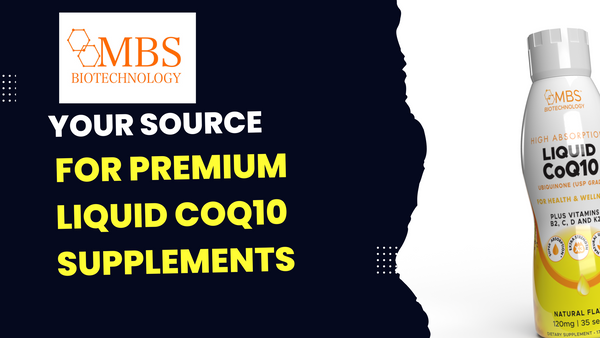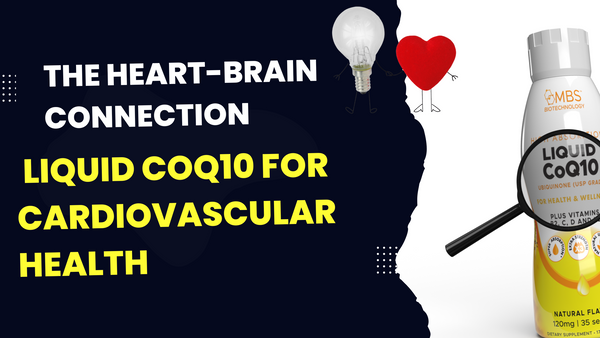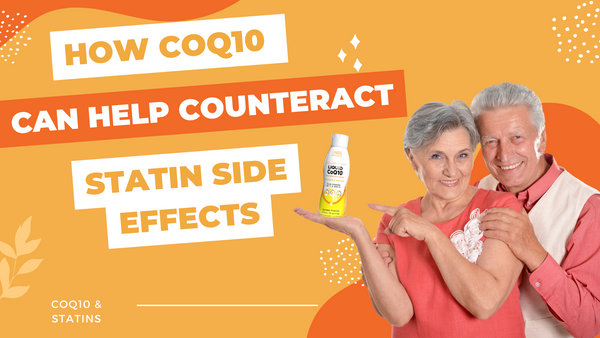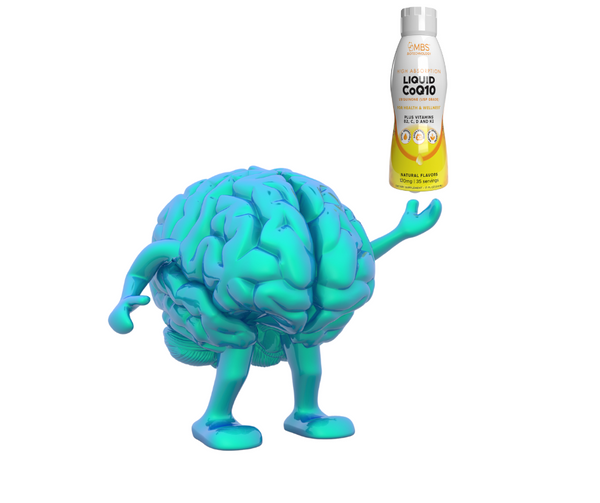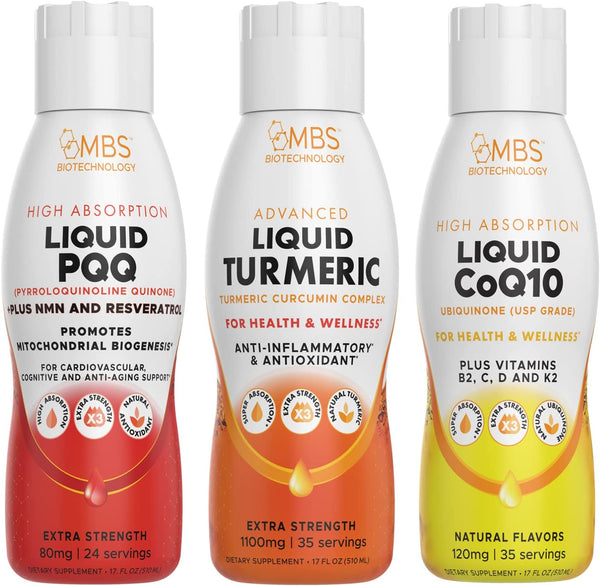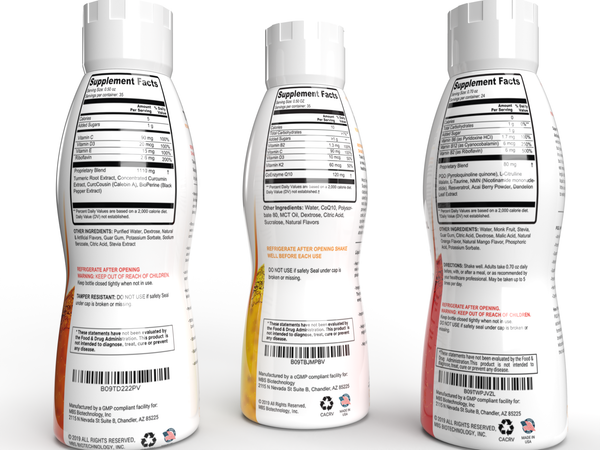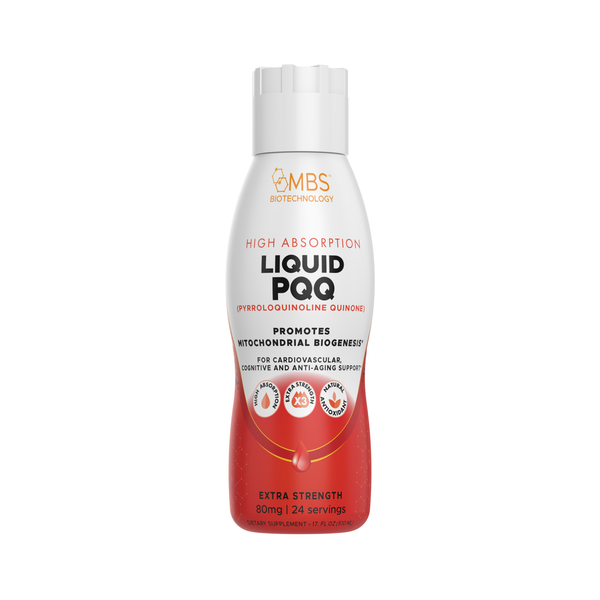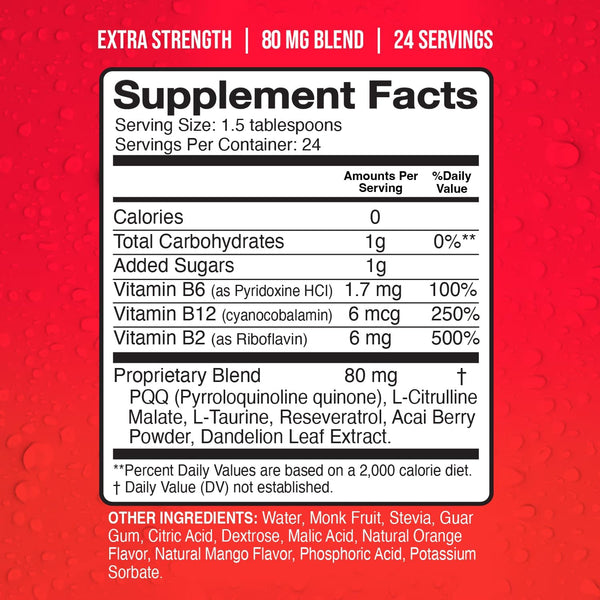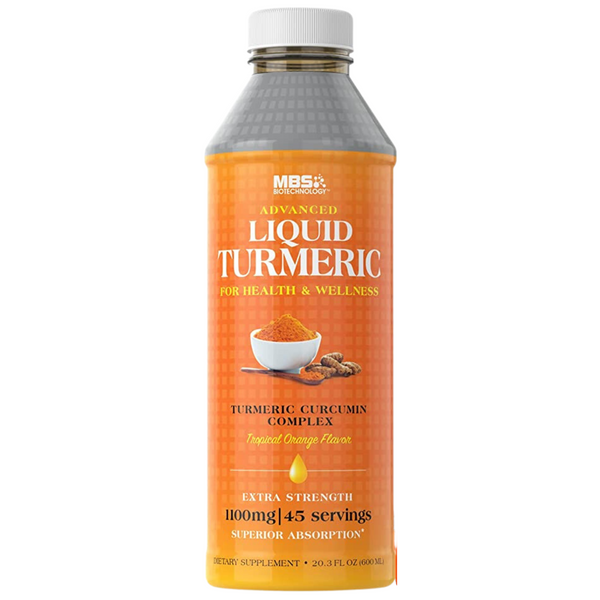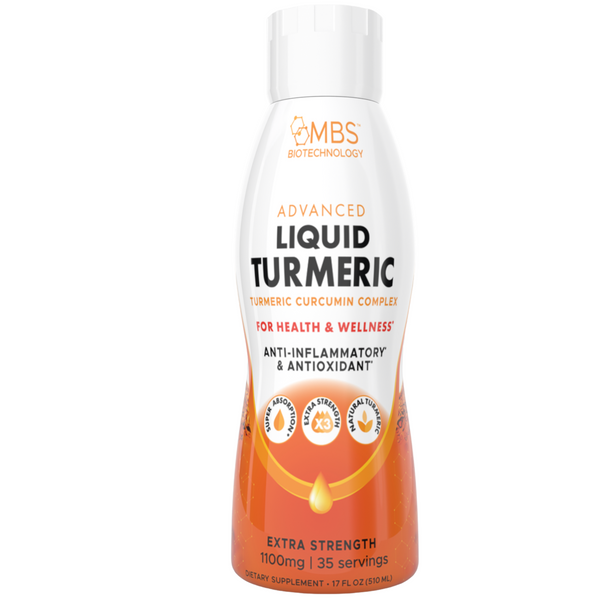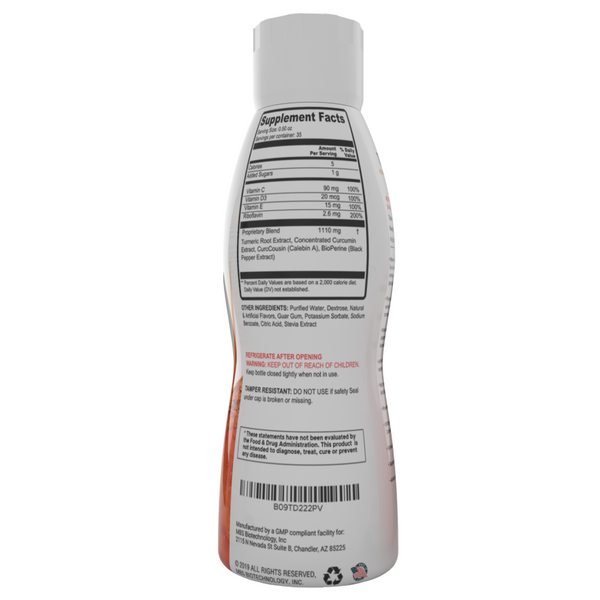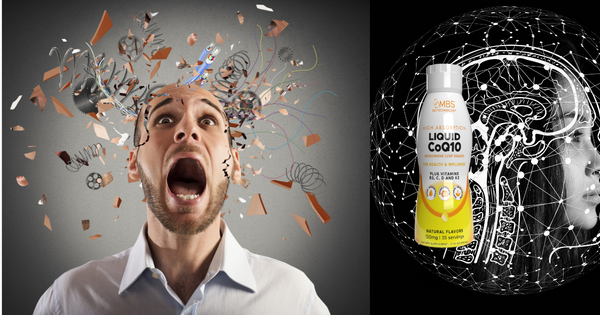
Liquid CoQ10 vs. Other Brain Fog Supplements: Which is Right for You?
Liquid CoQ10 is a popular supplement that has been shown to have potential benefits for brain health, including reducing symptoms of brain fog. However, there are other supplements on the market that claim to have similar effects. In this blog post, you could compare and contrast liquid CoQ10 with other brain fog supplements, discussing the pros and cons of each and helping readers make an informed decision about which supplement might be right for them. Some potential topics to cover could include:
The science behind liquid CoQ10 and its effects on brain function
Coenzyme Q10 (CoQ10) is a naturally occurring compound that plays a critical role in the production of energy in cells. It is particularly important for the function of organs with high energy demands, such as the brain.
Studies have shown that CoQ10 has a range of potential benefits for brain function, including improving cognitive function, reducing oxidative stress, and reducing inflammation. However, the effects of CoQ10 on brain function may vary depending on the form of CoQ10 used.
Liquid CoQ10 is a highly bioavailable form of the compound that is easily absorbed by the body, which may make it more effective than other forms of CoQ10 supplements. This means that liquid CoQ10 may be better at delivering CoQ10 to the brain and improving brain function.
One study found that taking a liquid CoQ10 supplement improved cognitive function in healthy adults over the age of 40. The study found that liquid CoQ10 supplementation was associated with improved memory, attention, and executive function compared to a placebo.
Another study found that CoQ10 supplementation reduced markers of oxidative stress in the brain and improved cognitive function in mice with Alzheimer's disease. This suggests that CoQ10 may have neuroprotective effects that could be beneficial for brain function.
Finally, a study published in the journal Neurological Sciences found that CoQ10 supplementation reduced levels of inflammation in patients with Parkinson's disease, a neurological disorder that is characterized by inflammation in the brain. This suggests that CoQ10 may have anti-inflammatory effects that could benefit brain function.
Other supplements that are commonly used for brain fog, such as ginkgo biloba, omega-3 fatty acids, and B vitamins.
Liquid CoQ10, ginkgo biloba, omega-3 fatty acids, and B vitamins are all commonly used as supplements to support brain function and combat brain fog. While each supplement has its own unique properties and potential benefits, there are some key differences between them.
Liquid CoQ10: Coenzyme Q10, or CoQ10, is a naturally occurring antioxidant that is involved in energy production in the body. It is found in every cell in the body, including the brain, and plays a key role in supporting cellular health. Studies have shown that CoQ10 supplementation may help improve cognitive function, reduce oxidative stress, and support brain health.
Ginkgo biloba: Ginkgo biloba is an herbal supplement that has been used for centuries in traditional medicine. It is believed to improve blood flow to the brain, enhance cognitive function, and protect against oxidative damage. Some studies have shown that ginkgo biloba may be effective in improving cognitive function in people with age-related cognitive decline.
Omega-3 fatty acids: Omega-3 fatty acids are essential fatty acids that are important for brain function and development. They are found in high concentrations in fatty fish and some nuts and seeds. Studies have shown that omega-3 supplementation may help improve cognitive function, reduce inflammation, and protect against age-related cognitive decline.
B vitamins: B vitamins are a group of vitamins that are important for brain function and energy production. They play a key role in the production of neurotransmitters, which are chemicals that transmit signals in the brain. Studies have shown that B vitamin supplementation may help improve cognitive function, reduce the risk of cognitive decline, and improve mood.
In terms of effectiveness for brain fog, there is limited research comparing the effectiveness of these supplements directly. However, each supplement has its own unique properties that may make it more suitable for certain individuals or situations. For example, liquid CoQ10 may be more effective for individuals with low CoQ10 levels or those who need extra support for cellular health, while omega-3 fatty acids may be more effective for individuals with inflammation or those who need support for brain development.
The benefits and drawbacks of liquid CoQ10 compared to other brain fog supplements
Benefits of Liquid CoQ10:
- More easily absorbed by the body compared to other forms of CoQ10 supplements.
- Can potentially increase energy levels and reduce fatigue, which can help with brain fog.
- Has antioxidant properties that can protect the brain from oxidative damage.
- May support cardiovascular health, which can have positive effects on brain function.
Drawbacks of Liquid CoQ10:
- May be more expensive compared to other brain fog supplements.
- Liquid form may not be as convenient for some people compared to capsules or tablets.
- Effects may take longer to become noticeable compared to other supplements.
- May interact with certain medications, so it's important to talk to a healthcare provider before starting to take it.
Benefits of Ginkgo Biloba:
- Has been shown to improve cognitive function and memory in some studies.
- Has antioxidant properties that can protect the brain from oxidative damage.
- May help with anxiety and depression, which can contribute to brain fog.
Drawbacks of Ginkgo Biloba:
- Effects may not be consistent across all studies.
- Can cause side effects such as headaches, dizziness, and upset stomach in some people.
- May interact with certain medications, so it's important to talk to a healthcare provider before starting to take it.
Benefits of Omega-3 Fatty Acids:
- May improve cognitive function and memory in some studies.
- Has anti-inflammatory properties that can reduce inflammation in the brain, which may contribute to brain fog.
- May support cardiovascular health, which can have positive effects on brain function.
Drawbacks of Omega-3 Fatty Acids:
- Effects may not be consistent across all studies.
- May cause side effects such as upset stomach, diarrhea, and fishy aftertaste in some people.
- May interact with certain medications, so it's important to talk to a healthcare provider before starting to take them.
Benefits of B Vitamins:
- May improve cognitive function and memory in some studies.
- Can support overall brain health and function.
- May help with stress and anxiety, which can contribute to brain fog.
Drawbacks of B Vitamins:
- Effects may not be consistent across all studies.
- Can cause side effects such as upset stomach and headaches in some people.
- May interact with certain medications, so it's important to talk to a healthcare provider before starting to take them.
- Overall, the best brain fog supplement for an individual will depend on their specific needs and health status. It's important to talk to a healthcare provider before starting to take any supplements and to carefully consider the benefits and drawbacks of each option.
How to choose the best brain fog supplement for your needs and lifestyle
Brain fog can be caused by a variety of factors, including stress, poor diet, lack of sleep, and certain medical conditions. While there are many supplements on the market that claim to help with brain fog, it's important to choose the right one for your needs and lifestyle. Here are some tips to help you choose the best brain fog supplement:
-
Identify the underlying cause of your brain fog. Before you start taking any supplements, it's important to identify the underlying cause of your brain fog. This may involve talking to your doctor or a healthcare professional to rule out any underlying medical conditions that may be contributing to your symptoms.
-
Look for supplements that contain ingredients that are known to support cognitive function. Some of the most effective ingredients for brain health include omega-3 fatty acids, ginkgo biloba, B vitamins, CoQ10, and caffeine.
-
Choose a supplement that is backed by scientific research. Look for supplements that have been tested in clinical trials and have been shown to be effective for improving cognitive function.
-
Consider the form of the supplement. Some brain fog supplements come in pill form, while others are in liquid or powder form. Liquid supplements are often absorbed more quickly and efficiently by the body, while pills may be more convenient for some people.
-
Think about your lifestyle and preferences. Consider factors like taste, ease of use, and cost when choosing a brain fog supplement. For example, if you don't like the taste of liquid supplements, you may prefer a pill or powder form.
-
Check for potential side effects and interactions. Before taking any supplements, it's important to check for potential side effects and interactions with any medications or supplements you are already taking.
Tips for incorporating brain fog supplements into your daily routine
Determine the appropriate dosage: The appropriate dosage of liquid CoQ10 can vary depending on the individual and their needs. It is best to start with a lower dose and gradually increase it as needed, under the guidance of a healthcare professional.
Take it with a meal: Liquid CoQ10 is best absorbed when taken with a meal that contains some fat. This helps to increase its bioavailability and effectiveness.
Incorporate it into your daily routine: To ensure that you are consistently taking your liquid CoQ10 supplement, consider incorporating it into your daily routine. For example, you could take it at the same time each day with breakfast or dinner.
Be patient: It can take time to notice the effects of liquid CoQ10 on brain fog, so be patient and consistent with your supplement regimen.
By following these tips, you can effectively incorporate liquid CoQ10 into your daily routine as a brain fog supplement.
